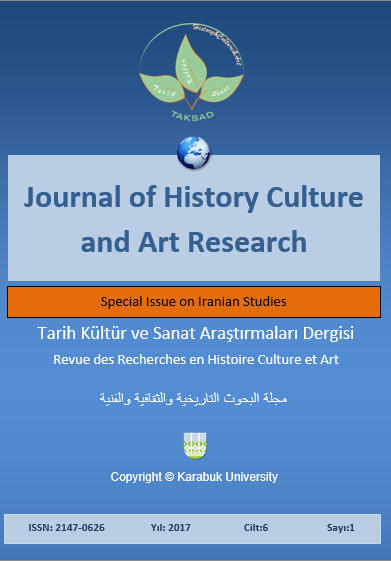The Impact of Moral Education on Religious Life
DOI:
https://doi.org/10.7596/taksad.v6i1.779Keywords:
Ethics, Islamic lifestyle, Moral virtues, Self-purification.Abstract
Moral education is the foundation of happiness and misery of human beings and societies. Thus, the present study explores the necessity of moral education in life and its impact on the realization of Islamic lifestyle using descriptive-analytical method. Without morality, religion has no meaning for people, and the world will not be organized. The issues of ethics, self-purification, and be adorned with moral virtues are of utmost importance in all monotheistic religions, especially in Islam. Man is capable of connecting to all perfections but achieving it depends on the correct training, and in order to achieve the grand aim of closeness to God, the best practice should be chosen. In the Islamic tradition, the aim is gaining the satisfaction of God. In addition, the governed relations on the individuals' lives are affected by the perspective inspired by lifestyle. Thus, the effect of moral education to establish Islamic lifestyle is undeniable and inevitable.
References
Baba Nejad, M., Kheshtzarin, H., Miri, S. & Delpishe, K. (2010). Investigating the Lifestyle and Related Factors in College Students of Medical Sciences of Ilam Province. Researcher Magazine. Issue 5, 17th Year.
Cockerham, W. C. (2005). Health Lifestyle Theory and the Convergence of Agency and Structure. Journal of Health and Social Behavior. 46, 51-67.
Doostdari, A. (2008). The Comparison of the Perspectives of Khajeh Nasir Al-Din Tusi and Martyr Motahari and the Educational Implications of These Two Theories. Master's Thesis, Majoring in the History and Philosophy of Education in Shiraz University.
Eskandari, H. & Kiani, J. (2007). The Effect of Story on the Increase of the Expertise of Philosophy and Questioning of the Students. Quarterly of Curriculum Studies. Issue, 7.
Fuchino Y., Mizoue T., Tokui N., Ide R., Fujino, Y. & Yoshimura, T. (2003). Health-Related Lifestyle and Mental Health among Inhabitants of a City in Japan. Nippon-Koshu-Eisei-Zasshi. 50, 303-13.
Kaviani Arani, M. (2009). Lifestyle Theory from the Islamic Perspective and the Construction of Islamic Lifestyle Test and Evaluating its Psychometric Properties. Phd Thesis, University Of Isfahan.
Kaviani, M. (2009). Islamic Education through the General Objectives and Behavioral Goals. Journal of Interdisciplinary Research of Holy Quran. Issue 3, p. 2.
Koleini, M. (1990). Usul Al-Kafi. Translated by Mostafavi, Tehran: Islamic Seminary Bookstore.
Majlesi, M. B., (n.d.). Bahar Al Anvar. Beirut: House of Revival of Arab Heritage.
Musavi, S., Qasempoor, A. & Rezazadeh, Sh. (2013). A Brief Explanation of Moral Education from the Viewpoint of Imam Ja'far Al-Sadiq. Conference on Lifestyle from the Perspective of Imam Jafar Sadeq (Peace Be Upon Him), Khorasgan: Islamic Azad University.
Naraqi, M. (2007). Islamic Ethics. Tehran: Hekmat Publication.
Qara Maleki, F., et al. (2007). Professional Ethics in Iranian Civilization and Islam. Tehran: Social and Cultural Studies Institute of the Ministry of Science, Research and Technology.
Qarvian, M. (1998). The Philosophy of Ethics in Islam. Yamin Cultural Institute.
Qomri, M. (2009). Exploring the Relationship between Religiosity and Happiness Level Among Students Based on Gender and Marital Status. Psychology and Religion. Vol. III, P. 75-91.
Rahimi, A. (2008). Evaluation from Islam Perspective, in the Proceedings of the National Conference on Academic-Educational Assessment, Basic Course. First Edition. Qom: Publication of Hazrat Masumah.
Saheb Al Zamani, M., Fesharaki, M. & Abdollahi, M. Z. (2010). Exploring the Relationship between Lifestyle and Self-Esteem in Adolescent Girls in Tehran: Islamic Azad University Journal of Medical Sciences, Vol. 20, No. 1, March 2010.
Shafii Abadi, A. & Naseri, Q. (1992). Counseling and Mental Health Theories. Publishing Center of Tehran University.
Sheikhi, A. A. (2004). Constructivism and Educational and Psychological Theories of Postmodernism. Hormozgan University.
Downloads
Published
How to Cite
Issue
Section
License
All papers licensed under Creative Commons 4.0 CC-BY.- Share — copy and redistribute the material in any medium or format
- Adapt — remix, transform, and build upon the material for any purpose, even commercially.
Under the following terms:
Attribution — You must give appropriate credit, provide a link to the license, and indicate if changes were made. You may do so in any reasonable manner, but not in any way that suggests the licensor endorses you or your use.
- No additional restrictions — You may not apply legal terms or technological measures that legally restrict others from doing anything the license permits.







